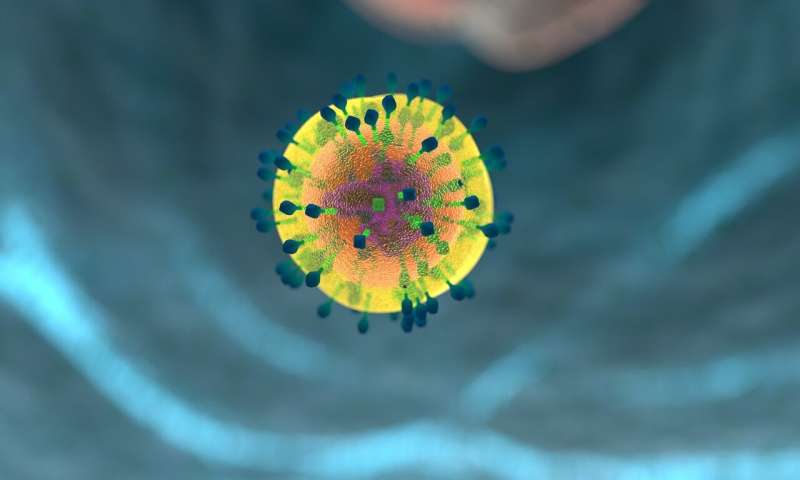Blocking energy production in immune cells helps tumours escape treatment

A small molecule that inhibits energy production in immune T-cells allows some tumours to escape treatment with an immunotherapy called PD-1 blockade therapy, says a study in mice published today in eLife.
Cancer therapies that help boost the immune system's defences to tumour cells are a promising new approach to treatment. One such therapy blocks PD-1, a receptor on the surface of T-cells. Cancer cells express a protein that binds to this receptor and interferes with the T-cell's ability to kill tumour cells. But while drugs that block this receptor can reactivate the T-cells, they are not always effective and the results of the new study help explain why.
"Despite the great success of PD-1 blockade therapy, we need to improve its efficacy because more than half of patients' tumours don't respond to it," says lead author Alok Kumar, a Ph.D. student in the Department of Immunology and Genomic Medicine at Kyoto University, Japan.
To learn why so many tumours fail to respond to PD-1 blockade therapy, Kumar and his colleagues studied mice with two types of tumour cells: some that were sensitive to PD-1 blockade therapy and others that were not. This allowed the team to identify two different types of tumours that do not respond to PD-1. One type suppressed the immune system and caused even the PD-1-sensitive tumour cells to grow, while the other had no effect on PD-1-sensitive tumour cells.
"We found that some human cancer cells release immunosuppressive molecules that inhibit the activity of energy-producing mitochondria in T-cells," Kumar explains. Treating the mice with a mitochondria-boosting compound reversed this effect in the immune-suppressing tumour.
However, the treatment had no effect on the other type of tumour. Instead of impairing energy production in T-cells, the other tumour made itself invisible to the immune system by failing to produce a protein that helps immune cells recognise tumour cells.
The identity of the molecule that helped the first type of tumour suppress mitochondria is currently unknown. The researchers hope that if they can find it, they can create drugs that hinder its activity. "If we could identify these unknown factors and develop drugs that block them, we could save patients' lives by using the drugs alongside PD-1 blockade therapy to prevent tumours from defending themselves," says senior author Tasuku Honjo, Professor of Immunology and Genomic Medicine at Kyoto University.
More information: Alok Kumar et al, Tumors attenuating the mitochondrial activity in T cells escape from PD-1 blockade therapy, eLife (2020). DOI: 10.7554/eLife.52330

















